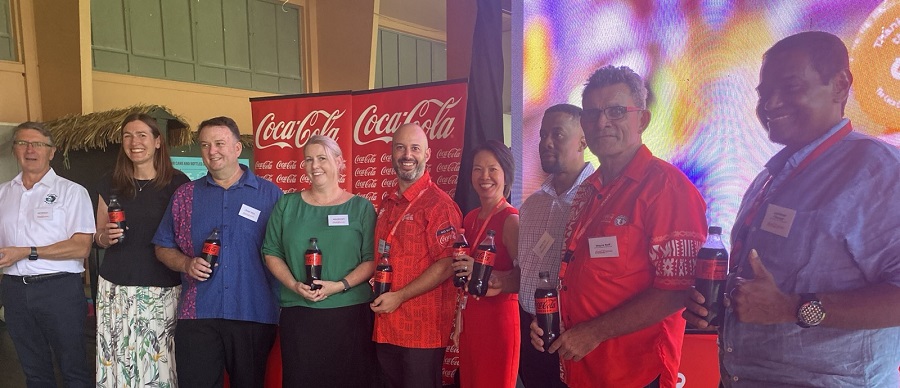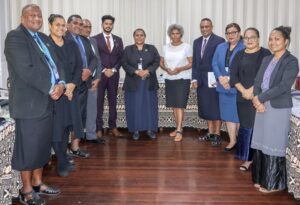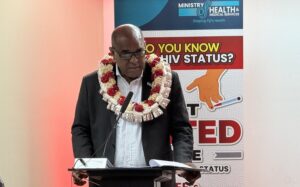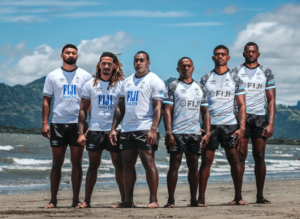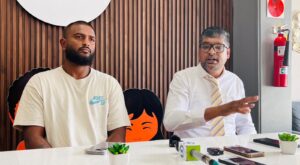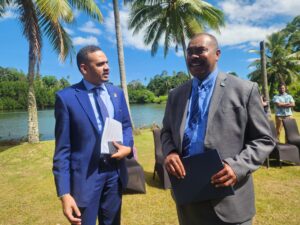All Coca-Cola European Pacific Partners (CCEP) Fiji PET bottles, less than one litre, returned for recycling will be paid five cents each going forward as opposed to $1 per kg or $0.50 cents per kg if the collection is arranged.
The increased price offering is one of three means CCEP has adopted to drive its collection in line with an announcement it recently made to use more recycled plastics for its PET bottles rather than new plastics. In doing so, CCEP removes over 300 tonnes of virgin plastic from its production process, assisting efforts to reduce packaging waste in the environment.
In Suva this week, alongside Coca Cola Oceania, CCEP announced that all of its PET bottles, smaller than one litre, equating to more than half the bottles in their portfolio of beverage brands in Fiji, are now made from 100 percent recycled plastic, as part of Coca-Cola’s global commitment to help support sustainable packaging solutions. The brands include Coca-Cola, Sprite, Fanta, POWERADE, Minute Maid and Scheweppes.
CCEP Fiji General Manager Roger Hare said making use of recycled plastics in their bottles would be an expensive exercise, cost far more than using new plastics, but one the company felt was the responsible thing to do.
“Packaging waste is undoubtedly a major challenge and it’s also a solvable one if we take action,” CCEP Fiji General Manager Roger Hare said. “Our plastic bottles have intrinsic value and we need to treat them this way. This means helping to collect and recycle all the plastic bottles we bring to the market so that they can be used again and again.”
The company is looking to its Mission Pacific PET bottle, a collection scheme it set up more than 20 years ago in partnership with Fiji Water and Motibhai to drive the initiative, of which the rate of take-up since the program started in 1999, Jeff Maguire, Group Head of CDS Development & Implementation at Coca-Cola Amatil admits has been “fairly steady.”
“We have been collecting about 20 percent of our material, so now I have to get to 100 percent. To get and maintain circularity, we need to collect as many bottles as possible. We want to use those bottles, again and again, to deliver our beverages and reduce the use of virgin plastic.
“We want to collect about 40 percent of our PET footprint to do that, So I am here to work to drive this collection rate higher. We want to ensure we collect our complete PET footprint by quantity, and by that means that we want to collect one container for every container we put into the market.”
To encourage more people and drive the collection, Maguire said, they were also making it convenient, and accessible.
“We want to make collection points more convenient by working in conjunction with some of our retail partners to ensure that containers can be returned in the normal course of people’s lives or at the normal cost of people’s businesses. About accessibility is to ensure that there are easily accessible collection points for the collection of the containers. In some instances, that might mean we need to come to you. And the other thing is incentives, so each PET container is now redeemable for five cents at our collection points.”
At the moment, Mission Pacific has only three collection points, being the main MP outlet along Ratu Dovi Road in Laucala Beach, Nasinu, Vesi Crescent in Waiyavi, Lautoka and Vamasisuasua subdivision in Labasa, in Vanua Levu.
“This is certainly the starting point. We need to get together collectively to solve the plastic crisis, and we will collect our footprint by 2030. We are prepared to step forward and work with you to ensure it doesn’t end up in the environment.”


